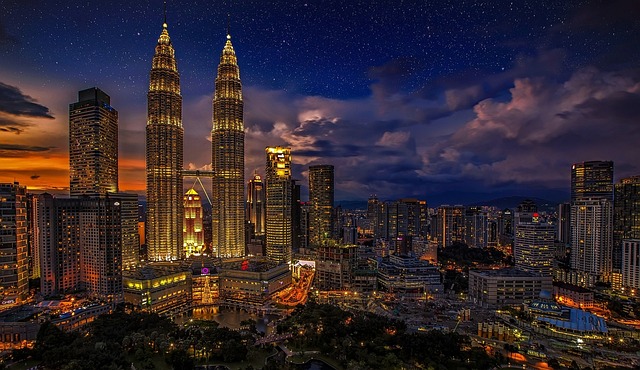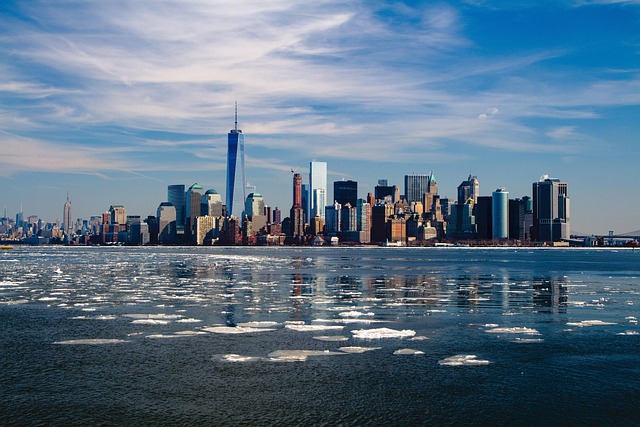
In Karachi, Pakistan's economic powerhouse, commercial zoning plays a vital role in shaping the city's landscape. Shahra-e-Faisal, known as the financial district, showcases strategic planning through designated areas for various business sectors. This has fostered efficient resource allocation, promoted economic growth, and enhanced quality of life. Historically evolved from residential to South Asia's premier business hub, today it boasts modern architecture, ample parking, and advanced security, catering to diverse industries. Strict regulations ensure a secure environment. Commercial zoning has boosted the local economy through diversification, improved infrastructure, and accessibility, contributing significantly to Karachi's GDP growth. Future prospects include integrating smart city technologies and eco-friendly practices for sustainable urban development while maintaining economic vitality.
Karachi’s Shahra-e-Faisal, a bustling commercial hub, has witnessed significant evolution over time. This article delves into the intricacies of commercial zoning on this iconic street, exploring its historical context and the factors shaping its current landscape. We analyze key features, regulations, and the profound impact on the local economy. Furthermore, we anticipate future prospects, highlighting potential developments and challenges while positioning Shahra-e-Faisal as a game-changer in Karachi’s dynamic business scene.
- Understanding Commercial Zoning in Karachi's Shahra-e-Faisal
- Historical Context: Evolution of Shahra-e-Faisal's Commercial Landscape
- Key Features and Regulations for Commercial Spaces
- Impact on Local Economy and Business Growth
- Future Prospects: Potential Developments and Challenges
Understanding Commercial Zoning in Karachi's Shahra-e-Faisal

In Karachi, Pakistan’s bustling metropolis, understanding commercial zoning is key to navigating the city’s vibrant economic landscape. Shahra-e-Faisal, often referred to as the financial district of the city, exemplifies this concept. Here, specific areas are designated for commercial activities, ensuring a balanced and organized growth of businesses. This strategic planning allows for the efficient allocation of resources, promoting economic development while maintaining harmony in the urban environment.
Karachi’s commercial zoning in Shahra-e-Faisal caters to various sectors, from high-rise office buildings housing multinational corporations to retail hubs teeming with local and international brands. Such segmentation not only facilitates specialized services but also enhances the overall quality of life for residents by minimizing noise and traffic congestion associated with commercial hubs.
Historical Context: Evolution of Shahra-e-Faisal's Commercial Landscape

Shahra-e-Faisal, a prominent commercial artery in Karachi, has witnessed a remarkable evolution over time, reflecting the dynamic nature of Pakistan’s largest metropolis. Historically, the area was not always dedicated to commerce; it has gradually transitioned from residential and agricultural lands to becoming one of South Asia’s premier business hubs. The road’s transformation started in the mid-20th century when urban planning efforts led to the establishment of specific zones for commercial activities. This shift brought about a bustling commercial landscape, attracting entrepreneurs and businesses from various sectors.
Over the years, Karachi’s economic growth and changing consumer patterns have further fueled the development along Shahra-e-Faisal. The introduction of modern shopping malls, high-rise office buildings, and vibrant street markets has added to its allure. Today, this commercial corridor is a thriving center for retail, real estate, and financial services, contributing significantly to Karachi’s reputation as an economic powerhouse in the region.
Key Features and Regulations for Commercial Spaces

In Karachi, Shahra-e-Faisal stands out as a prime commercial hub, characterized by its diverse range of businesses and state-of-the-art infrastructure. The key features of commercial spaces here are modern architectural designs, ample parking facilities, and advanced security systems, all contributing to an ideal environment for trade and commerce. These spaces cater to various industries, from finance and technology to retail and hospitality, reflecting the city’s dynamic economic landscape.
Regulations governing these commercial areas in Karachi are stringent yet necessary to maintain order and enhance productivity. Local authorities enforce strict building codes, fire safety standards, and noise pollution controls to ensure a secure and comfortable business environment. Additionally, zoning laws strictly regulate land use, ensuring that commercial spaces remain dedicated to their designated purposes. These regulations not only preserve the area’s integrity but also promote sustainable growth, making Shahra-e-Faisal a prime destination for businesses in the heart of Karachi.
Impact on Local Economy and Business Growth

The introduction of commercial zoning in Shahra-e-Faisal, Karachi, has had a profound impact on the local economy and business growth. By carefully regulating and designating specific areas for commercial activities, the city has witnessed a surge in entrepreneurial ventures and economic diversification. This strategic move has attracted businesses from various sectors, fostering a vibrant business ecosystem that benefits both established companies and startups.
The organized zoning structure has facilitated efficient resource allocation, improved infrastructure development, and enhanced accessibility for customers and businesses alike. As a result, Karachi’s commercial zones have become thriving hubs, contributing significantly to the city’s GDP growth. This positive transformation encourages further investment, creates job opportunities, and strengthens the overall economic resilience of the metropolis.
Future Prospects: Potential Developments and Challenges

The future of commercial zoning in Shahra-e-Faisal, Karachi holds immense promise, with potential developments that could transform the city’s economic landscape. As Karachi continues to grow and evolve, strategic planning is vital to ensure sustainable expansion. One promising avenue is the integration of smart city technologies, enhancing infrastructure and facilitating seamless business operations. The introduction of eco-friendly practices could also define the new wave of development, aligning with global sustainability trends.
However, challenges remain. Balancing rapid urbanization with environmental conservation is crucial, especially in a densely populated city like Karachi. Zoning regulations must adapt to accommodate emerging industries while preserving green spaces and critical infrastructure. Effective collaboration between stakeholders—including government bodies, developers, and local communities—will be essential to navigate these complexities and create a harmonious urban environment that supports both business growth and quality of life for residents.
Karachi’s Shahra-e-Faisal, with its rich commercial history, continues to evolve as a dynamic economic hub. By understanding the nuances of commercial zoning, harnessing the impact on local business growth, and addressing future challenges, the area can sustain and even amplify its role in shaping Karachi’s economy. The strategic development of this iconic commercial landscape will be key to unlocking its full potential, ensuring a vibrant and prosperous future for all stakeholders.


